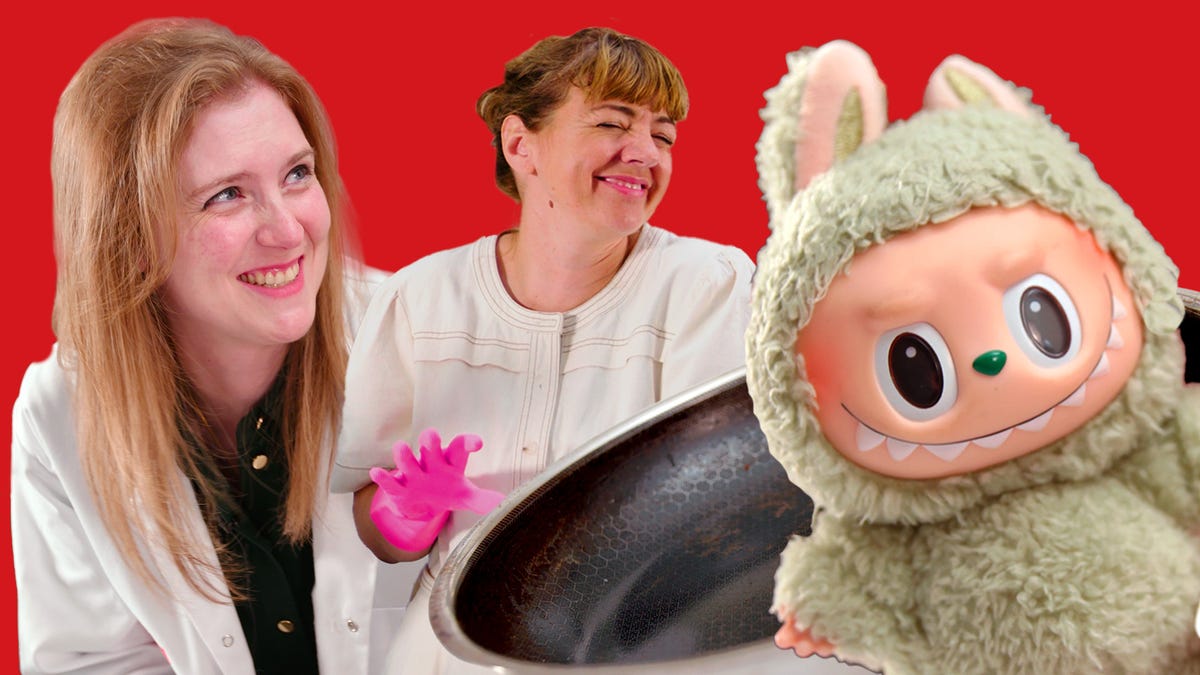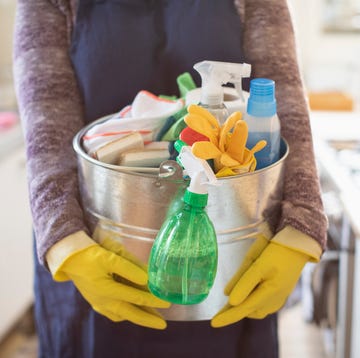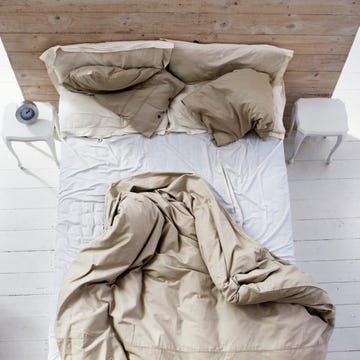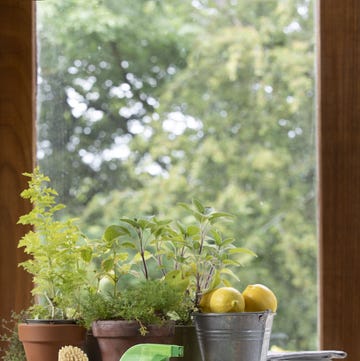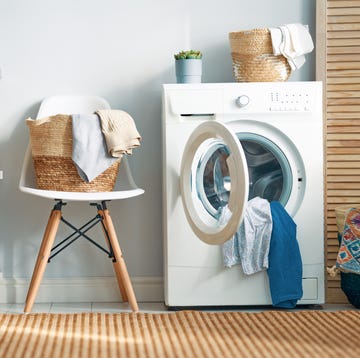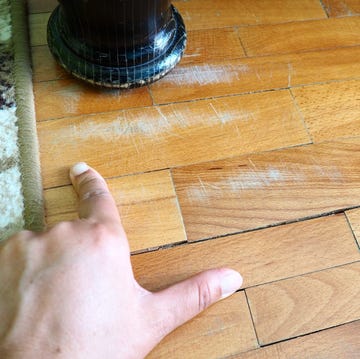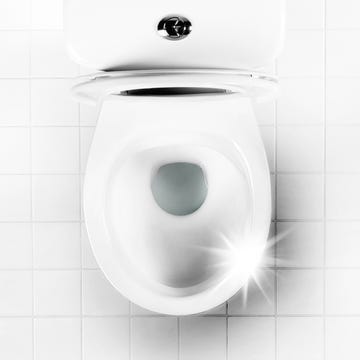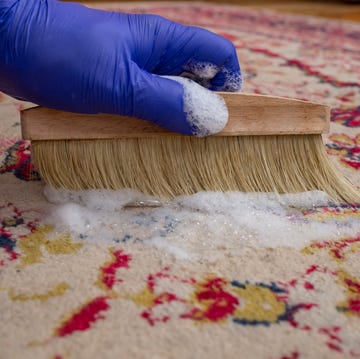I’ll admit it: I love cleaning and organising. Not exactly standard for a 24-year-old, but the joy of a freshly vacuumed rug, a perfectly tidy desk or the glow of a candle smugly lit post-cleaning sesh is unmatched. That said, I’m still new to the professional decluttering game. I’ve only been in my household advice writer role for three weeks (if anyone’s counting).
So, to help me tackle some of the chaos in my own life, I went straight to the expert: our household advice editor, Katie Mortram. If there’s one person whose cleaning and decluttering tips I’d follow without hesitation, it’s her. I asked Katie to share her top four easiest-to-implement hacks and put them to the test during the week.
For context, I was looking for simple hacks as I live in a flatshare with four other girls. It’s a fabulous, if slightly chaotic, set-up, which is why I was after quick, low-effort hacks to restore order to our whirlwind of shared living, without asking too much of them. Here’s how my flatmates and I got on.
Create a clutter basket
Katie’s advice: ‘Use a basket in your kitchen to collect miscellaneous items, then sort through them every weekend.’
Of all the hacks, this was the one I was most excited to try. We all love to cook, but our kitchen isn’t exactly generous on space. Inevitably, odds and ends pile up, taking over the counters, so even making a cup of tea feel like a strategic manoeuvre. Enter: the clutter basket.
Within hours, it had already gathered a curious collection: rubber bands, batteries, hay fever tablets, a fossil, a bundle of sage and the British icon that is the ludicrously capacious giant Sports Direct mug. It became the home for anything without a home.
The impact was immediate. Knowing there was a designated drop zone made everyone more mindful. I found myself actually putting things away, rather than leaving them out ‘for later’. No one wanted their stuff to be called out in the weekly clear-out. Admittedly, some items stayed unclaimed – turns out it’s hard to get someone to take responsibility for a bundle of mystery cables – but the threat of the bin usually smoked out the rightful owner.
The best part? We got our counter space back.
Add a letter organiser
Katie’s advice: ‘Have a letter organiser to sort through your mail as it comes in. Dispose of junk mail – and prioritise the organiser for things that need to be actioned.’
Anyone who’s ever lived in a flatshare knows that post can be weirdly overwhelming. It’s usually about 20% relevant and 80% addressed to former tenants from seven years ago – or worse, junk mail destined straight for the bin (or even worse still, the floor).
So Katie’s suggestion to add a letter organiser was very welcome. We kept it simple: two baskets. One for actual post and one for junk. That’s it. And you know what? It worked incredibly well – as you can see by the two very empty baskets at the end of the week.
The usual heap of letters that no one wanted to deal with – partly because it was too chaotic to decipher – was replaced with two clear, manageable categories. My flatmates and I were suddenly far more likely to check for our names when the choice was between a neat little basket or wading through a pile of takeaway menus and credit card offers.
Even better, the junk basket stayed almost empty. Since we sorted everything as it came in, no one felt the need to let it pile up. It was one of those changes that felt so obvious in hindsight, but the impact was immediate. No more rogue mail cluttering the hallway, no more mystery letters buried under pizza flyers – just simple, efficient order.
Sunday handbag reset
Katie’s advice: ‘Sort through your handbag each Sunday to reset it. Throw away receipts and rubbish – only carry what you use day to day.’
Sounds simple, right? But in reality, many of us treat our handbags like emotional support bins. Rather than clearing them out, we squish the mess down and keep moving.
So I decided to give my bag a proper Sunday reset. I tipped everything out on to my bed and immediately questioned several life choices. Among the carnage: two broken chargers, a Haribo wrapper from who knows when, multiple empty lip glosses, out-of-date hay fever medicine, a rogue fork, a tiny pot of honey and something I can only describe as ‘mysterious and lint-covered’.
Visually delightful? Not so much. Necessary? Absolutely not.
The whole process took 15 minutes and it made a huge difference. My bag was lighter, my back and neck (perpetual victims of overpacking) felt better and the newly organised compartments gave me the illusion that I had my life together.
I also took a moment to give my bag a proper clean with an leather anti-bac wipe, inside and out. Given what our bags go through – public transport grime, café floors, bathroom counters – it’s a habit worth building into every weekly reset, or ideally a daily one.
Be strict with the coat rack
Katie’s advice: ‘Only keep shoes and coats you actually wear by the front door. One coat per hook. One pair of shoes per spot. Monitor daily.’
This was the hardest hack to implement, mainly because it involved other people. Our flatshare hallway had slowly become a dumping ground for outerwear. With limited wardrobe space in our bedrooms, the hallway hooks were doing heavy lifting. So, asking everyone to strip it back to just one coat? Ambitious.
But in the spirit of the experiment, I pleaded my case and we gave it a go.
And honestly? The transformation was liberating. With only a light jacket each (we’re mid-heatwave), the hallway looked bigger, brighter and so much more welcoming. The infamous ‘corner of shame’, where guests were once greeted by a mountain of puffers, was no more. But, of course, it didn’t last for ever.
By day four, things began to creep back in. Flatmates missed the extra wardrobe space, and I caught myself double-hooking a raincoat, just in case. As much as we loved the visual calm, the system wasn’t quite sustainable for a house of five with small bedrooms and zero extra storage.
Still, the rule served a purpose – it hit reset on the hallway and showed us how good the space could look. Even if we don’t stick to it religiously, we’re now much more conscious of what’s dumped where – and that’s a win in my book.











